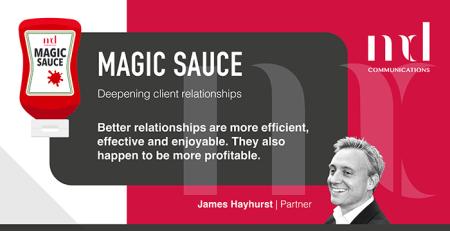As a fan of 1980s US TV exports, I’m worried that the five days I have planned in Miami won’t include many encounters with people who wear shoes with no socks, or who sport a white blazer jacket with the sleeves rolled up.
Instead, this will be time spent with lawyers (partners and associates from a spread of jurisdictions) who know that a fast-changing legal services landscape means they need to innovate to thrive – looking at how they address everything from leadership style to marketing, PR, governance and IT.
It’s a five-day intensive course, offered by IE Law School, and I’m one of the speakers.
I’ll be focusing on business development through communications and marketing, using firms’ experiences in Latin America for many case studies – and then looking at ways to exploit opportunities available through publications and awards.
1. Latin America
Opportunities, so the saying goes, can be staring you in the face, but you still can’t see them. There is, therefore, no shame in using some basic rules to help you see what’s there.
I am thinking in particular of the opportunities in new markets or markets that are changing rapidly. A useful model for this is the way some firms are approaching the opportunities in Latin America – the subject of a white paper MD Communications put together with several firms in the UK and LatAm.
In Latin America the number of established international firms is relatively small, but rich natural resources are fuelling a growth in projects linked to the exploitation of those resources.
The very large instructions on project finance, say, tend to go to global firms who work a ‘fly-in/fly-out’ model. But there are plenty of ancillary areas from disputes to private client and immigration; company and commercial, listings and trade. A lot of opportunities are centred on outward investment.
Know your firm
Or more precisely, know your people. Many firms know very little about their people in the round – interests and previous experiences sit in a file in HR. But languages, family connections, student exchange years, previous employers – all may be things that include a connection to your target market. This sort of intel may change who you take on a trip to make connections and drum up business. At the very least, you may identify someone you can sense-check your approach with.
Look at the market
Let’s think about ‘oil and gas’. It’s a very particular sector, but don’t be put off if you aren’t an oil and gas lawyer. Exploiting resources intended for export creates other opportunities – executives who need visas, family trusts are created, disputes with an origin in Mexico are settled in London.
Be patient, keep it personal
The personal connection and trust mattered hugely in the markets we looked at. The advice was to take your time getting to know those who can refer you work or instruct you direct. In the US and UK, the expectation is of a much quicker return – if you forget that, you’ll feel like you wasted your time.
This works at all levels
Don’t just think about charming the CEO or senior partner. A lot of people are doing that – think about whether your more junior people can make connections in the target firm.
Be helpful
Can you be helpful to the people you’re trying to win work from? This is a two-way thing – how better to keep yourself at the front of their minds than by helping them out with connections, information, or small bits of assistance?
This may all sound pretty old fashioned in a world where we are also debating what legal tasks a robot can take off an assistant lawyer. But doing business in huge swathes of the world remains a very personal thing – and being good at this side of it also reduces the chances you lose your career to a robot.
2. Publications and awards
Even if you are doing the above and it seems to be going well, it’s also well worth:
- getting a few press mentions
- getting articles published in journals
- spending time on legal directory submissions (mainly Legal 500 and Chambers),
- and putting in for awards.
These are not ‘new’ opportunities, but in a world that has increasingly more ‘out there’ about you, even people you’ve met and who are learning to trust you will need the reassurance that you are as good as you say you are.
They may find you this way – a focus on new areas of work related to fast-growing economies makes this more likely. And at the very least your online and awards presence matching the story you present to people is important – a sort of hygiene check.
You need to consider some questions in this regard:
- What are you known for? And are you known for what you really do?
- Are you pleased with your directory mentions? How do they compare to what you put in for?
- Have the correct bits, in your view, of your firm been the ones that won awards?
- When quoted in the press, is it because your lawyers are seen as ‘go-to’ lawyers?
If you are unhappy with your answers to any of those questions, then perhaps it’s time to roll up your sleeves, remove your socks, and head to Miami.
If you’re interested in the course, here’s the full programme or you can start your application.
It would be great to see you there!












